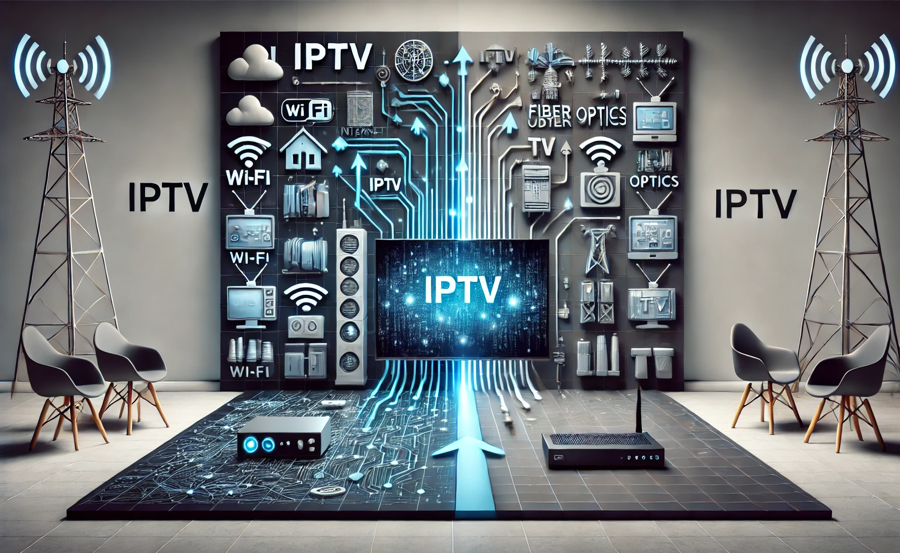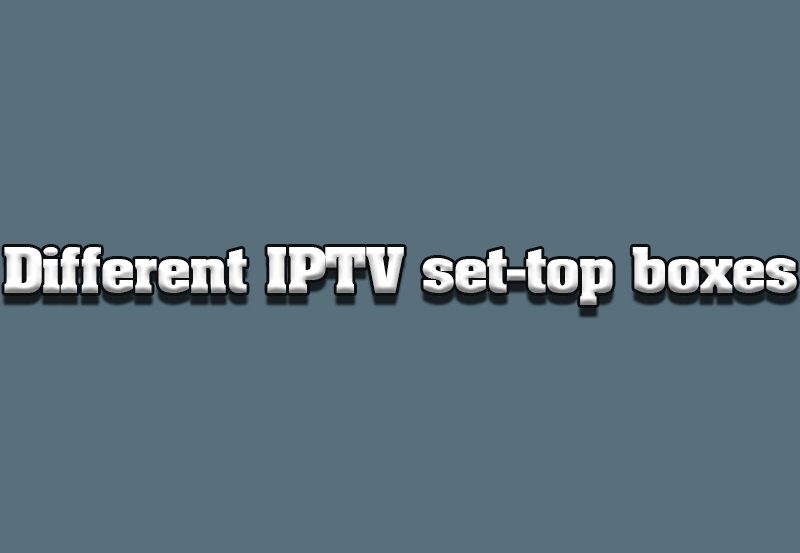As the world of television continues to evolve, IPTV (Internet Protocol Television) has emerged as a popular alternative to traditional cable TV. IPTV delivers live TV, on-demand content, and streaming services over the internet rather than through traditional cable or satellite signals. While IPTV offers numerous benefits, it also has certain limitations when compared to cable TV. This guide explores the advantages and disadvantages of IPTV to help you determine if it’s the right choice for your entertainment needs.
Advantages of Using IPTV over Cable TV
1. Wide Variety of Content and Flexibility
One of the main benefits of IPTV is the vast array of content it offers, ranging from live TV channels to on-demand movies and series. IPTV providers often offer more diverse content options than traditional cable, including niche channels and international programming.
- On-Demand Content: Access to a vast library of movies, shows, and recorded programs at any time.
- Personalized Viewing: Customizable channel packages allow users to pay only for the channels they want.
- Global Access: IPTV services often provide access to international channels and content that may not be available through cable providers.
2. Greater Convenience and Mobility
IPTV can be streamed on a variety of devices, including smartphones, tablets, smart TVs, and computers, which offers greater flexibility than cable TV.
- Watch Anywhere, Anytime: Users can access IPTV content wherever they have an internet connection, offering flexibility for on-the-go viewing.
- Multi-Device Compatibility: Compatible with multiple devices, allowing for a seamless experience across platforms.
- Simultaneous Streaming: Many IPTV services allow users to stream on multiple devices simultaneously, unlike traditional cable.
3. Interactive Features and User Experience
IPTV often includes interactive features that enhance the viewing experience, such as pause, rewind, fast-forward, and catch-up TV. These features are often unavailable with traditional cable.
- Time-Shifting: Pause or rewind live TV broadcasts, allowing viewers to watch shows at their convenience.
- Catch-Up TV: Users can access shows they missed, reducing the need to stick to strict viewing schedules.
- Personalized Recommendations: Some IPTV services offer tailored recommendations based on viewing habits, similar to OTT platforms like Netflix.
4. Cost-Effective and Customizable Plans
IPTV typically provides more budget-friendly options compared to cable TV, especially since many providers allow users to select only the channels they want.
- Affordable Plans: IPTV services generally offer lower subscription costs than traditional cable.
- Customizable Packages: Pay for only the content you want to watch, potentially reducing unnecessary costs.
- No Installation Fees: Many IPTV services don’t require hardware installation fees, which can save on setup costs.
5. High-Quality Streaming
With the right internet connection, IPTV can deliver high-quality streaming, often exceeding the quality of traditional cable in terms of resolution and sound.
- HD and 4K Content: Many IPTV services offer HD and 4K streaming options, providing a superior viewing experience.
- Reduced Signal Interference: Since IPTV relies on internet connections, it is generally less susceptible to signal issues caused by weather conditions, which can affect cable TV.
Disadvantages of Using IPTV over Cable TV
1. Dependence on Internet Connection
IPTV relies entirely on an internet connection, so any disruption in connectivity can affect the streaming quality and accessibility of content.
- Bandwidth Requirements: For smooth HD or 4K streaming, IPTV requires a fast and stable internet connection, often at least 10 Mbps for HD and 25 Mbps for 4K.
- Buffering Issues: Slow or unstable internet can lead to buffering and interruptions, impacting the viewing experience.
- No Internet, No TV: Unlike cable TV, if there’s an internet outage, IPTV services become inaccessible.
2. Data Consumption
High-quality IPTV streaming, especially in HD or 4K, can consume large amounts of data, which may be an issue for users with data-capped plans.
- High Data Usage: Streaming IPTV in HD or 4K can quickly consume data, leading to additional costs for users with limited data plans.
- ISP Throttling: Some internet service providers may throttle or limit IPTV streaming data, which can degrade quality and performance.
3. Limited Access to Local Channels
While IPTV services provide a variety of international and specialized content, they may not offer the same selection of local channels as cable providers.
- Local Channels Availability: Cable providers often offer a broader selection of local channels, which may be limited or unavailable on IPTV.
- Access to Regional Content: Sports, news, and other local programming might be restricted depending on the IPTV service.
4. Licensing and Legal Issues
Some IPTV services operate in legal grey areas, and users need to be cautious when choosing a provider to ensure that they are using a legitimate service.
- Potentially Unauthorized Content: Some IPTV providers may offer unlicensed content, which can expose users to legal risks.
- Security Concerns: Some unauthorized IPTV services may lack adequate security measures, potentially putting user data at risk.
- No Guarantee of Service: Illegitimate IPTV services may not guarantee service quality or stability, leading to potential loss of access.
5. Technical Challenges and Limited Support
IPTV services may require some technical setup, and troubleshooting issues can be challenging, especially for users without technical expertise.
- Initial Setup: Sideloading apps or configuring IPTV players can be confusing for some users, unlike plug-and-play cable services.
- Customer Support: Many IPTV services, especially smaller or unauthorized ones, may not offer reliable customer support, which can be frustrating if issues arise.
- Device Compatibility: Some older devices may not support IPTV apps, limiting accessibility compared to traditional cable setups. want Buy one year IPTV susbcription
IPTV vs. Cable TV: A Quick Comparison
| Feature | IPTV | Cable TV |
|---|---|---|
| Content Variety | Extensive, including international channels | Limited to regional and bundled packages |
| Internet Dependency | Required | Not required |
| Device Compatibility | Multi-device support | Limited to cable boxes and TVs |
| Interactive Features | Available (pause, rewind, VOD) | Limited |
| Cost | Generally lower, with customizable packages | Often higher with fixed package costs |
| Picture Quality | Dependent on internet speed | Consistent, can vary by region |
| Access to Local Channels | Limited | Broad access to local channels |
| Data Consumption | High, especially with HD/4K | No impact |
| Legal Considerations | Depends on provider | Highly regulated |
Is IPTV the Right Choice for You?
Choose IPTV if:
- You have a stable, high-speed internet connection and want access to a wide range of content, including on-demand movies and international channels.
- You prefer flexibility in device compatibility and enjoy watching content on-the-go or across multiple devices.
- You want cost-effective, customizable subscription options that allow you to pay only for channels you use.
Choose Cable TV if:
- You prioritize consistent access to local and regional channels without relying on the internet.
- You prefer a straightforward setup with minimal technical requirements and don’t want to worry about data usage.
- You value reliability and do not want to deal with potential legal or service stability issues associated with unauthorized IPTV services.
Conclusion
Both IPTV and cable TV offer unique benefits and drawbacks, and the choice between the two depends on your personal preferences, budget, and viewing habits. IPTV provides flexibility, customization, and access to a vast library of on-demand content, making it ideal for those with a high-speed internet connection and a need for varied, mobile-friendly viewing. On the other hand, cable TV remains a reliable choice for those seeking stable access to local channels and straightforward service without depending on internet connectivity.
By weighing the advantages and disadvantages of IPTV over cable, you can make an informed decision that best suits your entertainment needs.
Advanced MAG Box IPTV Settings to Maximize Performance





